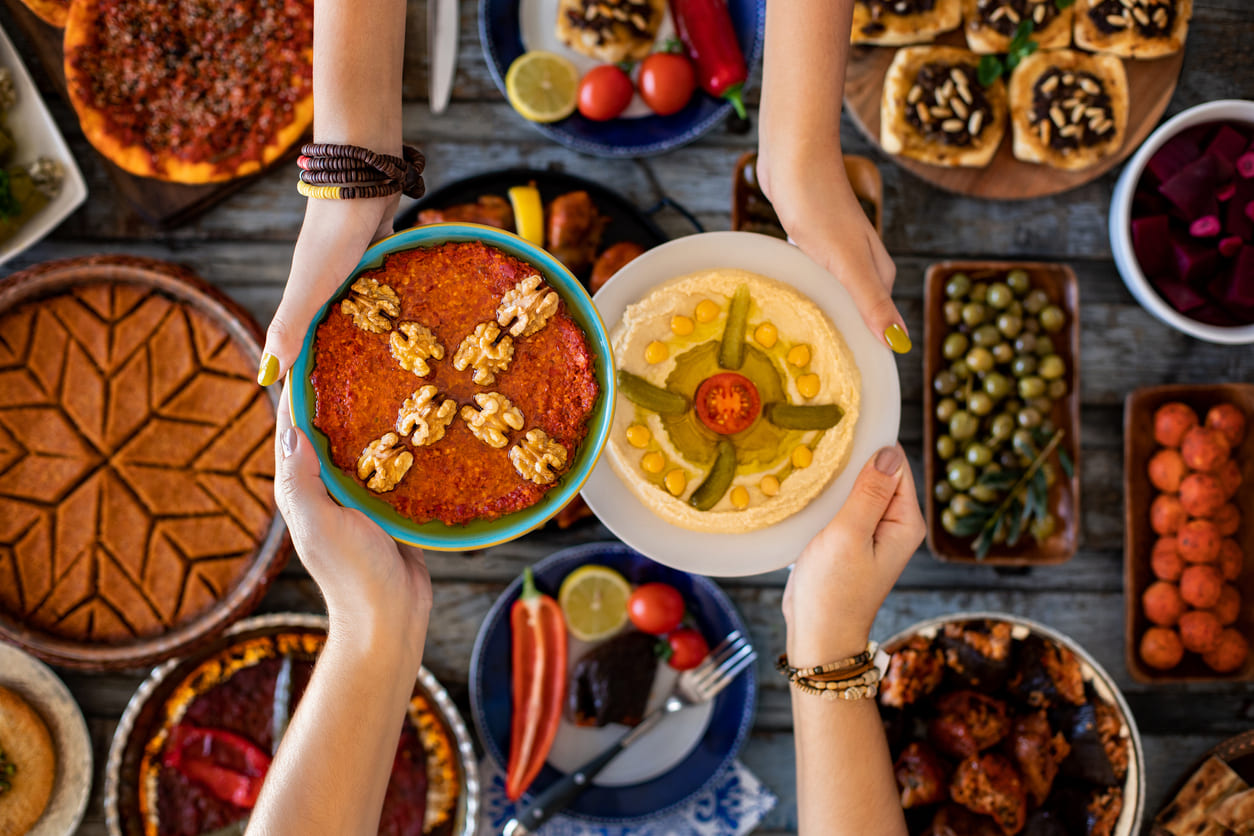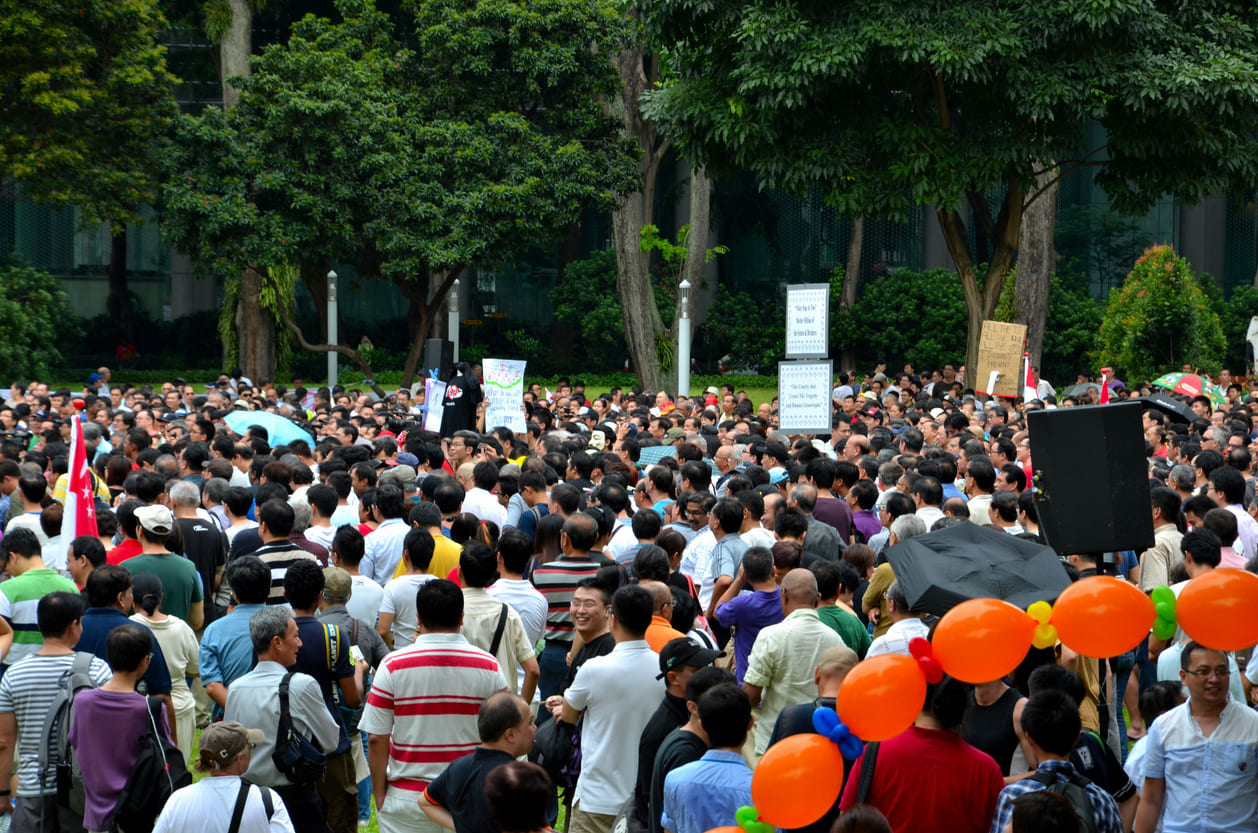Dates of Chinese New Year's Day in Singapore
| 2026 | Feb 17 - Feb 18 |
| 2025 | Jan 29 - Jan 30 |
| 2024 | Feb 10 - Feb 12 |
Singapore Holiday Calendars
Chinese New Year's Day is a major celebration marked by family gatherings, festive meals, and the exchange of red packets for good luck. It is a time for honoring traditions, welcoming prosperity, and strengthening bonds among loved ones.
Chinese New Year's Day: A Public Holiday?
Chinese New Year's Day is a public holiday in Singapore and marks the beginning of a two-day celebration welcoming the Lunar New Year with festive traditions and family gatherings.

Chinese New Year
Chinese New Year, also known as Lunar New Year or Spring Festival, has been celebrated in Singapore for generations. It is based on the Chinese lunisolar calendar, which marks the start of the new year with the arrival of spring. The festival dates back over 2,000 years and is rooted in ancient Chinese customs. Traditionally, it was a time to honor ancestors, drive away bad luck, and welcome good fortune into the home.
In Singapore, the celebration took shape with the arrival of Chinese immigrants in the 19th century, who brought their beliefs and traditions linked to the Chinese calendar. Over the years, these customs became deeply rooted in local culture. Chinese New Year is now one of the most important festivals in Singapore, celebrated widely and embraced by the nation's multicultural society.
Chinese New Year's Day Celebration in Singapore
Chinese New Year is a major celebration across Singapore, with traditions guided by the Chinese calendar. In the days before the festival, families thoroughly clean their homes to sweep away bad luck and decorate with red banners, couplets, and lanterns. On New Year's Eve, the reunion dinner brings families together, with symbolic dishes that represent prosperity and health. This meal marks a meaningful start to the festivities.
The first and second days of Chinese New Year are official public holidays. On the first day, people wear new clothes, usually in red, and visit close family members. Children receive red packets called 'ang bao' from elders, and blessings for good fortune are exchanged. The second day is traditionally when married daughters return to their parental homes, bringing their families along. This day is also used for visiting extended relatives and friends in a more relaxed and social manner.
Throughout Singapore, especially in Chinatown, the celebrations are vibrant and full of energy. Cultural performances, lion and dragon dances, fireworks, and festive markets create a joyful atmosphere. The Chinese lunisolar calendar not only sets the date but also connects generations through a shared cultural rhythm. Chinese New Year is important for strengthening family bonds, promoting positive values, and preserving heritage. In a diverse nation like Singapore, it also fosters mutual respect and understanding, uniting communities through celebration and tradition.
Chinese New Year's Day Observances
| Year | Date | Weekday | Name | Holiday Type |
|---|---|---|---|---|
| 2024 | Feb 10 | Sat | Chinese New Year's Day | National Holiday |
| Feb 11 | Sun | Second Day of Chinese New Year | National Holiday | |
| Feb 12 | Mon | Day off for Chinese New Year's Day | National Holiday | |
| 2025 | Jan 29 | Wed | Chinese New Year's Day | National Holiday |
| Jan 30 | Thu | Second Day of Chinese New Year | National Holiday | |
| 2026 | Feb 17 | Tue | Chinese New Year's Day | National Holiday |
| Feb 18 | Wed | Second Day of Chinese New Year | National Holiday | |
| 2027 | Feb 6 | Sat | Chinese New Year's Day | National Holiday |
| Feb 7 | Sun | Second Day of Chinese New Year | National Holiday | |
| 2028 | Jan 26 | Wed | Chinese New Year's Day | National Holiday |
| Jan 27 | Thu | Second Day of Chinese New Year | National Holiday |



